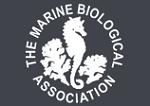APHOTOMARINE
An educational resource dedicated mainly to the photography
and diversity of marine life that can be found in coastal waters
and intertidal areas of Great Britain and Ireland by David Fenwick.

Tricellaria inopinata
- close-up zooids 1
Tufty-buff bryozoan
Tricellaria inopinata
- close-up zooids 2
Tufty-buff bryozoan
Tricellaria inopinata
- close-up zooids 3
Tufty-buff bryozoan
Tricellaria inopinata
- bryozoan lateral view 1
Tufty-buff bryozoan
Tricellaria inopinata
- on bottom of fish box 1
Tufty-buff bryozoan
Tricellaria inopinata
- fish box 1
This non-native species was found on French fish box washed-up at Lesceave, Praa Sands, Cornwall. 12.12.14.
Tufty-buff bryozoan
Tricellaria inopinata
- close-up 1
Tufty-buff bryozoan
Tricellaria inopinata
- close-up 2
Tufty-buff bryozoan
Tricellaria inopinata
- close-up / labelled image 1
Species found growing on the surface of a Laminaria, kelp blade, which in turn was growing on the side of a pontoon at Newlyn Marina, Newlyn, Cornwall. 02.11.14.
This non-native species originally came from the temperate Pacific. It was first recorded on the South Coast of England in 1998.
Species kindly confirmed from images by Dr. John Bishop of the Marine Biological Association.
APHOTOMARINE supports open source data recording and sharing for the benefit of wildlife, recorders, research, science and education. The project recommends the following websites and works with the following bodies and organisations.
The Marine Biological Association or MBA, based in Plymouth, is one of the world’s longest-running societies dedicated to promoting research into our oceans and the life they support. Since 1884 the MBA has been providing a unified, clear, independent voice on behalf of the marine biological community.It has a growing membership in over 40 countries.
The National Biodiversity Network or NBN is a charity that supports open source data sharing and recording supporting conservation, science and education. "Why do recorders need open source?". Simply because it supports the core values of wildlife recording and the free use of records and data over a very wide network that includes partners like the Natural History Museum.
The taxonomy used here is based on that of the following database, which is also used by the MBA, NHM and the NBN.
The World Register of Marine Species or WoRMS.

